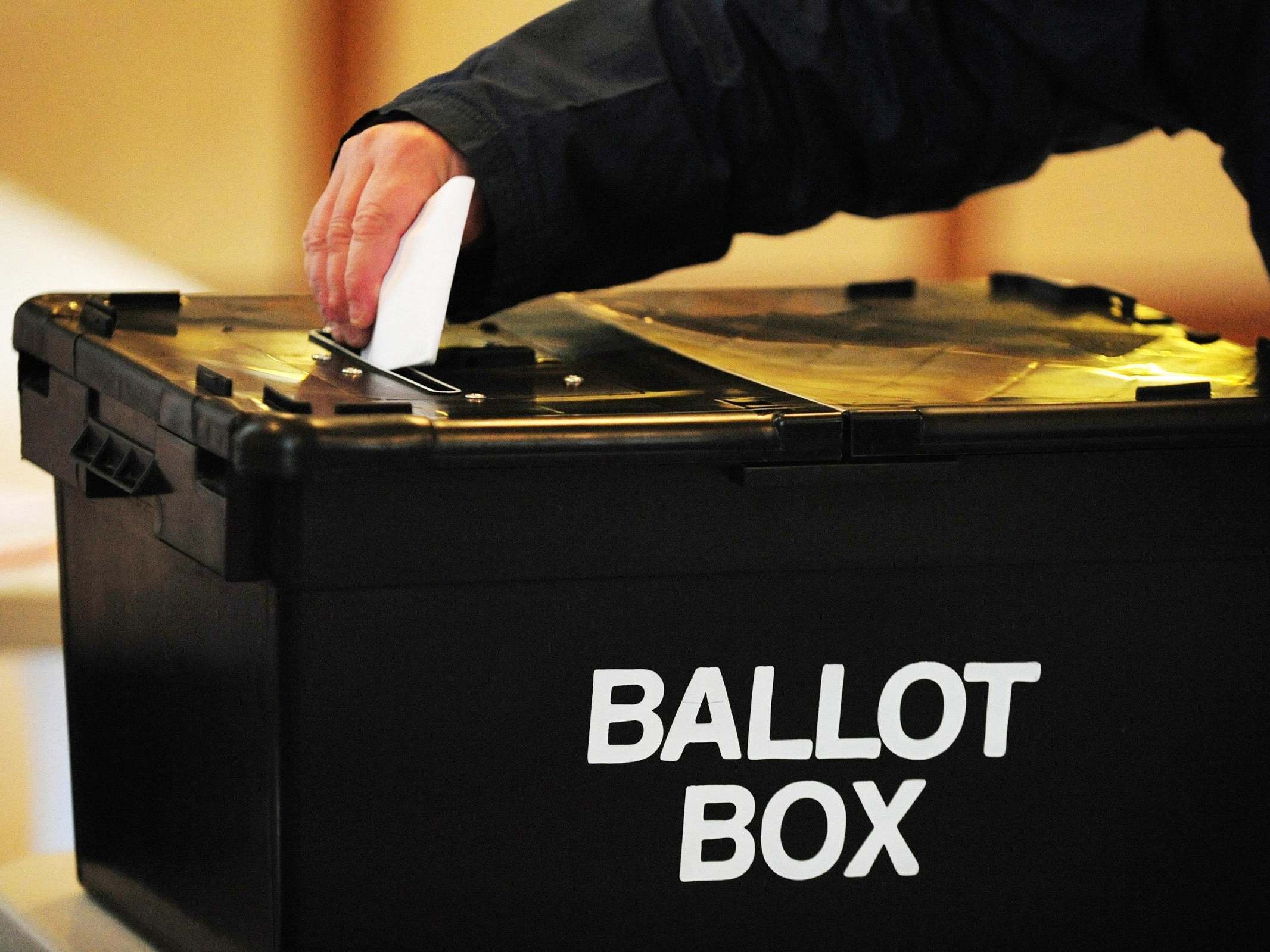General election: Conservatives extend lead over Labour as Brexit Party loses support, poll says
Apparent swing to Tories likely to be due to Nigel Farage standing down candidates, rather than a ‘debate bounce’ for Boris Johnson

Your support helps us to tell the story
From reproductive rights to climate change to Big Tech, The Independent is on the ground when the story is developing. Whether it's investigating the financials of Elon Musk's pro-Trump PAC or producing our latest documentary, 'The A Word', which shines a light on the American women fighting for reproductive rights, we know how important it is to parse out the facts from the messaging.
At such a critical moment in US history, we need reporters on the ground. Your donation allows us to keep sending journalists to speak to both sides of the story.
The Independent is trusted by Americans across the entire political spectrum. And unlike many other quality news outlets, we choose not to lock Americans out of our reporting and analysis with paywalls. We believe quality journalism should be available to everyone, paid for by those who can afford it.
Your support makes all the difference.Boris Johnson’s Conservatives have shot into a commanding lead in the latest general election poll for The Independent.
Tories put on four points over the course of a week to hit 41 per cent in the BMG Research survey, 13 points ahead of Labour, down one on 28 per cent.
Liberal Democrats were on 18 per cent (up two), with Greens on 5 per cent (unchanged) and Brexit Party on 3 per cent (down six).
But BMG’s head of polling Robert Struthers cautioned against assumptions that the figures represent a nationwide swing towards Tories in the wake of Mr Johnson’s TV debate with Jeremy Corbyn.
The poll was the first in the company’s series for The Independent which presented participants with the parties actually standing in their seats, following the decision of the Brexit Party not to fight 317 Tory constituencies.
As such, the apparent swing is likely to consist of Conservatives piling on more votes in seats which they may well have won anyway, while the key Labour-held marginals which Mr Johnson must win to secure a majority in the Commons are unaffected.
In terms of determining the final result of the 12 December poll, the last-minute decision of Brexit Party candidates to pull out of 39 contests in Labour marginals may have as much impact as Nigel Farage’s “unilateral Leave alliance” in Tory seats, said Mr Struthers.
Mr Struthers said: “Observers should avoid viewing this poll as providing any evidence of a post-debate bounce for Boris Johnson.
“While our numbers show the Conservatives opening up a considerable gap over the Labour Party, the increase in the Conservative lead can be attributed to the Brexit Party’s decision not to stand in more than half of seats in Great Britain, including all seats won by the Conservatives in 2017.”
He added: “The key battlegrounds at this election are the Labour-held marginals, many of which – though importantly not all – are unaffected by the Brexit Party’s decision to stand down.

“Therefore, much of this increase is likely a reflection of the Conservatives simply piling up more votes in seats they would have already won, and perhaps only making the difference in defending a handful of their own marginal constituencies.
“Indeed, in terms of seats won rather than overall share of the vote, the Brexit Party’s last minute decision not to stand in some additional Labour held marginals in England – seats such as Dudley North, Canterbury, and Bristol North West – could have at least as much impact as their decision not to stand in the 317 seats the Conservative won in 2017.”
The new poll confirmed the longstanding majority for continued EU membership, with Remain leading Leave by 54-46, unchanged from a week ago.
And it reflected continuing voter dissatisfaction with Mr Corbyn’s performance, with Mr Johnson preferred as prime minister by 43 per cent of voters against the Labour leader’s 28 per cent.
Mr Johnson overall satisfaction rating had declined by two points over the week from minus 14 to minus 16, with 58 per cent saying they were dissatisfied and 42 per cent satisfied with his performance as PM.
But Mr Corbyn’s rating plumbed new depths at minus 44, with 72 per cent dissatisfied and 28 per cent satisfied with him as leader of the opposition.
BMG questioned 1,663 British voters between 19 and 21 November
Join our commenting forum
Join thought-provoking conversations, follow other Independent readers and see their replies
Comments